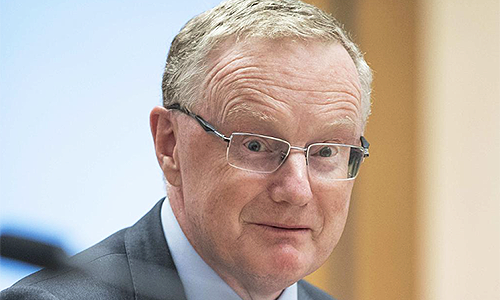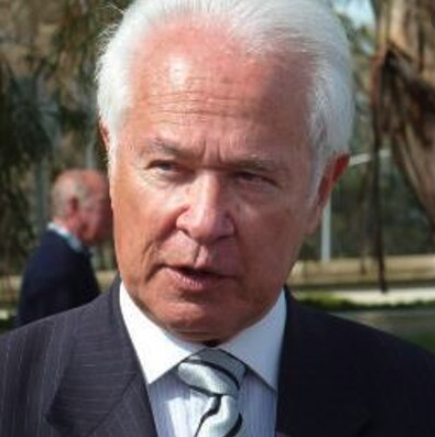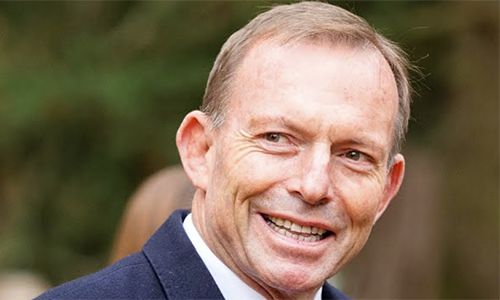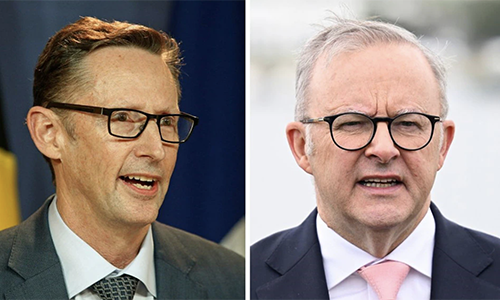
by DAVID FLINT – WAS the Reserve Bank so fearful of the Albanese Government’s threat to “reform” it they threw themselves onto the tired elites’ republican bandwagon?
In any event, the Bank went along with official creeping republicanism by trashing the long-standing Australian tradition that our King or Queen appears on the lowest denomination banknote.
- Rather than playing politics, the Bank ought to be spending its time on its core function.
- The Albanese government is attempting to silence the No case for constitutional change.
- The Bank went along with the PM’s creeping republicanism, but Aussies aren’t nearly as stupid.
Surely they don’t think this nonsense will persuade Aussies to do something they just do not do, vote Yes in a referendum when they’ve already said No?
Rather than playing politics, the Bank ought to be spending its time on its core function, interest rates.
ROBBING
The massive inflation of house prices is in good part the result of the Reserve Bank robbing savers, especially retirees, of their hard-earned interest, thereby vastly increasing bidding prices.
Then, the Bank assured borrowers the rise in US interest rates due to Biden’s insane profligacy would not quickly flow onto Australia.
After the debacle of allowing merchants to recoup the “cost” of credit cards, used by airlines and others to camouflage price increases, you’d think the Reserve Bank would stick to its core functions.
Never trust obsession-driven republicans. Cromwell taught our forebears precisely that.
In the meantime, the government is still proceeding with sinister legislation to suspend the Yes/No booklet.
One of the jewels of Australian representative democracy, and introduced by the 1912 Fisher Labor government, this should not be so thoughtlessly destroyed.
It allows elected representatives the unique opportunity to communicate with the people in a single, popular, well-discussed document presenting the succinct cases agreed to by our politicians for and against something of great importance, a proposed change to the constitution.
As the Labor PM Andrew Fisher said: “There can be nothing worse for a country than to expect the people in it to vote for or against the alteration of the constitution without knowing what they are doing.”
The genius of our Yes/No Case pamphlet is that in one source, we find a succinct and complete case for each side in a referendum, authorised personally by all the MPs proposing or opposing the change.
Hitherto, the only recommendation by numerous parliamentary reviews has been as to its delivery, not its existence.
In a detailed ten-point submission, Australians for a Constitutional Monarchy points out that despite the usual chatter of the elites, this has proved a popular and much-discussed document.
This was the reaction in 1999 across talkback, a medium uniquely accessible to the rank-and-file.
Indeed, the Electoral Commission revealed a survey on the eve of the last referendum found 80 per cent of respondents said they’d received the booklet, with 51 per cent reading some or all of it.
Further, Julian Leeser, ACM’s 1999 Youth Convenor, told a 2009 Inquiry roundtable that official 1999 Vote No Committee polling showed 45 per cent wanted more information and 78 per cent wanted it in a booklet form.
Obviously, one side can be severely disadvantaged by the wealth of the other as well as its media access. In 1999, Alan Jones excepted, most of the mainstream campaigned strongly and only for the Yes case.
And if we are not going to fund referendum campaigns, why not also get rid of the millions of dollars spent on taxpayer-funded election campaigning?
The government full well knows the Yes case is flush with money, with only Yes donors getting a generous tax deduction and the law being changed to allow the Albanase government to blatantly fund just one side.
In the meantime, despite attempts by the government to silence the No case, a strong No committee has been formed to “Recognise a Better Way”.
This includes the splendid Northern Territory Senator Jacinta Price; the former ALP Federal President Warren Mundine as well as former deputy prime minister John Anderson and former Keating government minister Gary Johns.
VOICE
They prefer constitutional recognition through a new preamble which has earned them the ire of proponents of the Voice.
What is being proposed by the No committee is not a change to the existing preamble. This is not to the constitution but to the British Constitution of Australia Act.
With both approved by the people of each self-governing colony (WA was a little slow), to give effect to Australians’ wishes, the Act had to be passed by the UK Parliament.
Our constitution is within it as section 9. Obviously, we can’t change the UK preamble.
In 1999, John Howard proposed a second preamble, one just to our constitution. But like the republic, that did not pass.
In 2015, when delivering the Neville Bonner Oration, PM Tony Abbott called on ACM to support constitutional recognition, probably in a new preamble.
Moving the vote of thanks, I suggested this be considered at an overdue elected convention when Australians would have their first opportunity in over a century to review their constitution.
DANGERS
A number of purists don’t see the need for this change. But if it were to satisfy the indigenous community without creating any of the dangers and wrongs the Voice clearly will, it is helpful surely to announce that if the Voice does not proceed, a new preamble could.
Tony Abbott proposes that this build on the reference in the British Act to our agreement to be united in “an indissoluble Federal Commonwealth under the Crown” and add the lyrical words that this is “with an indigenous heritage, a British foundation and an immigrant character”.
Whether some don’t like it, many would and, as a preamble, it could cause no harm.PC













Prof. Flint is of course correct – the government is set on ensuring the people do as encouraged and instructed so that it can effect more fundamental future change.
Mr Abbott’s proposed wording for insertion into the Constitution, quoted at the end of the article has indeed a factual appealing neurality and one imagines, with general legal agreement as to its neutrality, might well be considered.
The Reserve Bank of Australia is a creature of the Australian Government so don’t blame the RBA; saying that, doesn’t mean the Bank cannot be criticized for its performance. A Royal Commission into the policies emanating from the RBA would be in order.
Changing the Australian Constitution is an entirely different matter.
Proponents for change to the Preamble or the Constitution, should be sent packing in no uncertain manner. The ‘System of Government’ bequeathed to all Australian by our forebears is, without any doubt, the best in the world–it must be cherished and protected.
Any proposed changes to the Constitution MUST BE REJECTED.
Do you trust any politician with the ‘instrument’ of YOUR FREEDOM? VOTE NO!